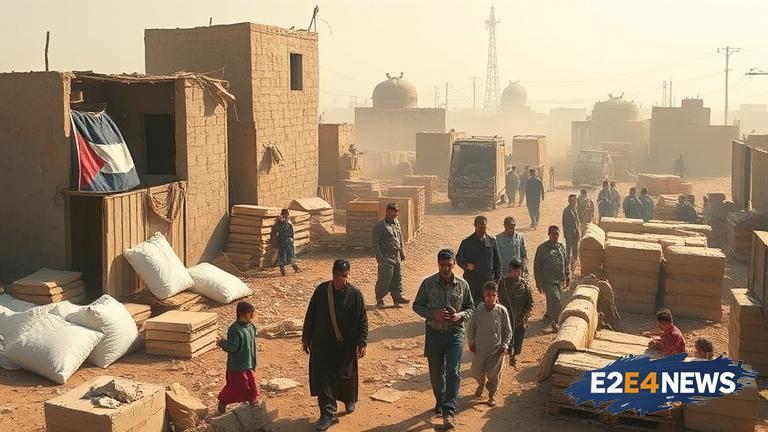The Gaza Strip, a Palestinian territory, is experiencing a devastating starvation crisis, with thousands of people struggling to access basic necessities like food and water. Despite promises of aid from international organizations and governments, the situation on the ground remains dire. The crisis is a result of a combination of factors, including a crippling blockade imposed by Israel and Egypt, which has severely limited the flow of goods and people into the territory. The blockade, which has been in place for over a decade, has had a devastating impact on Gaza’s economy, with unemployment rates soaring and poverty levels reaching unprecedented heights. The humanitarian situation in Gaza is further complicated by the lack of access to basic services like healthcare and sanitation. Hospitals in Gaza are struggling to cope with the influx of patients, with many lacking the necessary medical supplies and equipment to provide adequate care. The situation is particularly dire for children, with many suffering from malnutrition and related health problems. The aid efforts, which have been promised by various organizations and governments, have failed to materialize, leaving thousands of people without access to basic necessities. The international community has been criticized for its response to the crisis, with many arguing that more needs to be done to address the root causes of the problem. The United Nations has warned that the situation in Gaza is on the brink of collapse, with the potential for a full-blown humanitarian disaster. The crisis in Gaza is not just a humanitarian issue, but also a political one, with the Israeli-Palestinian conflict at its root. The conflict, which has been ongoing for decades, has resulted in the displacement of thousands of people, with many forced to live in refugee camps. The situation in Gaza is a stark reminder of the need for a lasting and just peace in the region. The international community must take immediate action to address the crisis, including providing urgent aid and working towards a lasting resolution to the conflict. The people of Gaza deserve nothing less than to live in dignity and with access to basic human rights. The crisis in Gaza is a wake-up call for the international community, highlighting the need for a more robust and coordinated response to humanitarian emergencies. The situation on the ground is a testament to the failure of the international community to address the root causes of the crisis. The Gaza Strip is one of the most densely populated places on earth, with over 2 million people living in a territory that is just 41 kilometers long and 12 kilometers wide. The territory has been under Israeli occupation since 1967, with the blockade imposed in 2007. The blockade has had a devastating impact on Gaza’s economy, with the territory’s GDP shrinking by over 50% since its imposition. The humanitarian situation in Gaza is further complicated by the lack of access to basic services like education and healthcare. The crisis in Gaza is a stark reminder of the need for a more nuanced and informed approach to humanitarian emergencies. The international community must take a more proactive and coordinated approach to addressing the crisis, including providing urgent aid and working towards a lasting resolution to the conflict. The people of Gaza deserve nothing less than to live in dignity and with access to basic human rights. The crisis in Gaza is a wake-up call for the international community, highlighting the need for a more robust and coordinated response to humanitarian emergencies. The situation on the ground is a testament to the failure of the international community to address the root causes of the crisis. The Gaza Strip is a stark reminder of the need for a more just and equitable world, where all people have access to basic human rights and dignity.





